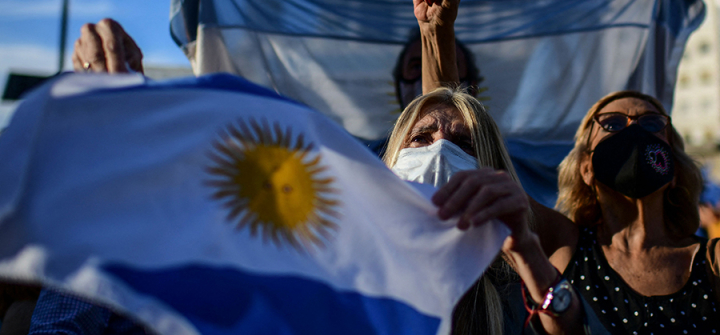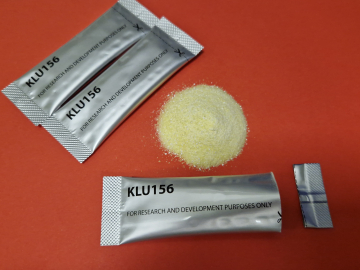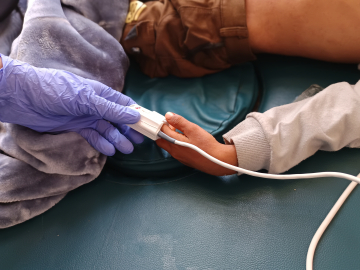Argentina and Covid-19: ‘The Worst Time Is Right Now’
*Visit the series page to read all of our COVID Country Dispatches.
A strict lockdown helped Argentina avoid the worst of COVID-19 in the pandemic’s early months, but it came at a high cost to the economy. And now, as the country prepares for winter, cases are surging, says Jamile Ballivian, a physician-epidemiologist who works for the Ministry of Health in Buenos Aires.
Battered by multiple economic crises in the last 50 years, the country’s fragile economy saw GDP fall by 10% in 2020, leaving 42% of the population living below the poverty level—and many working at multiple jobs just to get by. Argentines who are part of the country’s vast informal economy had no choice but to continue to work, feeding the recent spike in cases.
In GHN’s latest installment of COVID Country Dispatches, Ballivian offers a big picture assessment of her country’s experience during the pandemic and details her concerns and hopes as vaccines are slowly reaching 45 million Argentines.
Argentina
- Confirmed cases: 3,307,285
- Deaths: 70,522
Source: Johns Hopkins (as of May 17, 2021)
Big Picture
We had one of the longest lockdowns in the world, lasting for more than 6 months. It was very restrictive in the beginning. Restrictions were eased when the number of cases went down. Now that cases are rising, some restrictive measures have returned in many areas. The lockdown helped us to have a low number of cases in the beginning of the pandemic, but many people had to work even though there were restrictive measures in place. Numbers started to rise around July, August last year. We saw a decline in the numbers by the end of the year. But like many other countries, we are experiencing a new surge now, and we are seeing the highest number of cases since the pandemic started.
People’s Mood
This year the social mood has changed because of pandemic fatigue This is one of the reasons why, even though we are experiencing our highest number of COVID cases, I think the population is less likely to be as compliant with restrictive mass measures in comparison to last year.
Worst Time
I think the worst time so far is right now, with the surge in cases. Only around 2.5% of the population is fully vaccinated and around 16% has at least 1 dose of the vaccine. There is now an increase in the demand for health care services. Unlike last year, the health system is not solely dedicated to attending COVID cases. I hope we can overcome this wave without seeing serious consequences.
Vaccines
We started the vaccination rollout in late December, and the first vaccines that we received were the Sputnik V from Russia.
Fortunately, we are not dealing with vaccine hesitation now in our country, and we are slowly acquiring vaccines from Sinopharm and Covishield (from AstraZeneca) as well. Of course, the vaccine shortage is a problem all over the world, and we're also dealing with that. We still have a long road to go.
Schools
With the new surge, we have had a controversy regarding if the schools should be closed or not. In some districts, political leaders from one party wanted to continue having in person classes. And others were against that. The schools here mean much more than just education.
For a country that has around 50% of the children under the line of poverty, schools have an important social role and also provide meals for the children. Currently, depending on the district and its epidemiological situation, some schools have in-person classes and others have online classes.
Positive Moment
I think one of the most positive moments was last year in the very beginning of the pandemic. We saw all our political leaders put aside their differences and work together. It was surprising. It gave us some sort of relief to see them working all together. Everyone is working very hard to provide society with the best measures possible to pass this tough moment.
If I had to say something positive about pandemic, I would highlight the resiliency of the health care workers here in Argentina. Unlike in the US or in other countries like Brazil, health care workers here usually need more than two to three jobs to support themselves. I think it was very challenging for them to battle COVID at multiple jobs.
Ed. Note: Ballivian wants to make clear she is presenting her own personal views in this article, not that of her employer. This interview has been edited for length and clarity.
Join the 50,000+ subscribers in 170+ countries who rely on Global Health NOW for the latest public health news. Sign up for our free weekday newsletter, and please share the link with friends and colleagues.
Argentines protest in Buenos Aires against new COVID-19 restrictions. April 17, 2021. Image: Ronaldo Schemidt/AFP via Getty Images





